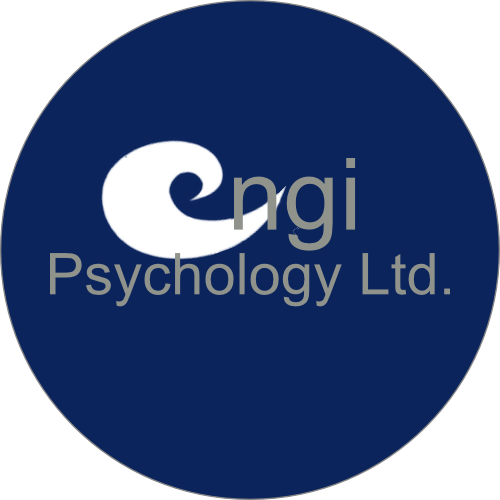TRAINING
Engi Psychology can bring training to your organisation to make it cost effective for your organisation. We offer a variety of highly specialised bespoke forensic psychology trainings and courses to private organisations, to the main UK private hospitals, the NHS and other services. We provide training and consultancy that covers many areas of forensic psychology.
Working with Personality Disorders
This is a 2-day personality disorder training course delivered by experienced Chartered Psychologists.
What do we actually do? Formulation and Consultation – A Schema Focused Approach
COURSE AIMS:
- Theory of personality and personality disorder.
- Working with PD
- Strategies for responding to people diagnosed with personality disorder.
- The need for a Psychological Informed Environment
- Formulation based approach. What is good formulation?
- Use schema informed formulation practice
- The 5 p’s
- The relevance of the schema approach with people with complex needs
- What is schema therapy? Early maladaptive schemas (EMS)
- Case studies
- Everything into practice
- Care plans
- Case consultation
UNDERSTANDING AND TREATMENT INTERVENTIONS:
- Linking Care Plans to effective treatment outcome.
- Evidence-based practice.
WHAT THIS COURSE WILL DO FOR YOU:
- Provide an understanding of personality disorder.
- It will equip you with crucial skills necessary to working with people with personality disorder,
- You will learn how to manage clients’ challenging behaviour
WHAT YOU RECEIVE AS A RESULT OF ATTENDING THE COURSE:
CPD event – All delegates receive a certificate confirming attendance
Working with Adults on the Autistic Spectrum
Working with adults on the Autistic Spectrum is a 2-day course.
Course Aims:
- This training is designed to provide education and understanding of working with adults on the autistic spectrum or with autistic traits.
- An insight and awareness of the traits of people on the autistic spectrum
- Acknowledging the possible strengths and weaknesses of individuals on the autistic spectrum
- Strategies and realities of working with adults with autistic traits
Features and Learning Outcomes:
- Assessing and understanding the individual needs and difficulties
- Developing your own skills to work with those on the autistic spectrum
- Managing behaviours
- Assessments and providing individual treatment and support plans
- Developing skills and improve wellbeing of the individual by making the environment friendly
- Case Studies
Target Group:
Nurses, Support Workers, Social Workers, Occupational Therapists and Staff with no or limited knowledge of autism.
Schema Therapy Training
Schema Therapy is a 2-day course.
Schema therapy is an innovative psychotherapy developed by Dr. Jeffrey Young for personality disorders, chronic depression, and other difficult individual and couples problems.
Research shows that for some patients, especially those with complex needs and personality disorder, CBT is not effective. Jeffrey Young developed the Schema Therapy framework that is an easy approach for patients and staff and helps with risk management and the development of prosocial behavior.
The four main concepts in the Schema Therapy model are: Early Maladaptive Schemas (EMS), Core Emotional Needs, Schema Mode, and Maladaptive Coping Styles. EMS are self-defeating, core themes or patterns that we keep repeating throughout our lives. EMS relate to the basic emotional needs of a child. When these needs are not met in childhood, schemas develop that lead to unhealthy life patterns. Maladaptive Coping Styles are the ways the child adapts to schemas and to damaging childhood experiences.
Schema Modes are the moment-to-moment emotional states and coping responses that we all experience. Often our schema modes are triggered by life situations that we are oversensitive to (our “emotional buttons”). Many schema modes lead us to overreact to situations, or to act in ways that end up hurting us.
COURSE AIMS:
The course aims to introduce staff and patients to the main principles of Schema with the aim to enhance understanding of client’s presentation. The main goal of the training is to help staff interacting with patients in an effective and pro-social way avoiding burn out as the efforts is to help patients strengthen their Healthy Adult mode; weaken their Maladaptive Coping Modes. More information about these concepts can be sent on request. This training aims at helping organizations and hospitals to set up psychological informed environments (PIE).
COURSE STRUCTURE:
- Why Schema Therapy.
- What is a schema?
- Early maladaptive schemas (EMS), definition and origins.
- Schema perpetuation and coping styles
- How to educate patients about schemas.
- Case assessments and formulation.
WHAT THIS COURSE WILL GIVE YOU:
- You will develop an understanding of the underlying psychological difficulties behind clients’ presentation
- You will gain insight into your own schemas and how they affect you and others.
- You will learn what works with personality disorder and how to challenge client’s disruptive behaviour

Psychopathy: Training
This is a 2-day course.
About the training
The Psychopathy Checklist Revised (PCL-R) is the best most commonly used measure of psychopathy in the UK and USA. It is important to assess psychopathy as Psychopathic Personality Disorder as it is directly associated to risk of violence and it is also relevant for risk management and treatability.
Learning Outcomes
- Understand the concept of psychopathy;
- Learn to assess and score psychopathy using the the Hare
- Psychopathy Checklist (PCL-R, 2nd Edition).
- Understand the link psychopathy and risk
- Case conceptualization and recommendations
Target Group:
Experienced professional working in mental health and social services, criminal justice system, prisons and forensic mental health services who are involved in the assessment, formulation and management of people with personality disorder. The training is for doctors, psychologists, nurses, social workers, probation officers, police, occupational therapists and other professionals working in the field.
Course materials: The course includes all of the training materials. Case studies are used to score the PCL-R. You will need to purchase the manuals for the PCLR. A certificate is provided to candidates who complete the course successfully and the training contributes to your continuing professional development (CPD).

START – Short Term Assessment of Risk and Treatability
(START) is a 2-day course.
About the training
START is brief clinical risk assessment looking at 7 areas of risk whilst considering 20 factors related to service users. It is intended for use in the assessment of short – medium term risks (days / weeks / months)
Click the button below to read more about the course






